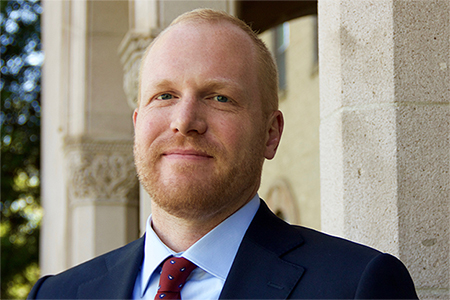Take me to “A Catholic’s Guide to Self-Help”
By Matthew McCall, Psy.D.
Many people today who are striving to grow in their faith and become a “good Catholic” find emotions confusing. Are emotions wrong and sinful? Do they cloud our ability to reason? Are they things to be controlled and suppressed in order to attain sanctity?
The reality is that God created our emotions, often called our passions, for many reasons. By better understanding what role they play in our lives, we can appreciate them for what they are and how they help us on our way to Heaven.
Understand Catechetical Teachings
Let’s start by looking at some teachings from the Catechism of the Catholic Church. According to section 1764, “The passions are natural components of the human psyche; they form the passageway and ensure the connection between the life of the senses and the life of the mind. Our Lord called man’s heart the source from which the passions spring.”
It’s clear from this teaching that our emotions are a created, ordered part of us. It makes sense, then, that “passions are neither good nor evil” as stated by section 1767, which goes onto say, “they are morally qualified only to the extent that they effectively engage reason and will.”
It’s important to remember this teaching: that emotions are not good or bad in and of themselves. The willful actions that may result from experiencing emotions are what actually carries the moral weight.
Recognize Bodily Connections
As the catechism tells us above, emotions help us connect our senses to our mind. That implies the fact that our emotions are bodily experiences. Emotions have specific and universal ways of expressing themselves in our bodies. Each of the six primary emotions (sadness, anger, guilt, fear, love, and joy) carry with it specific bodily sensations.
Anger, for instance, rises upward from the waist to the neck as a warm sense of energy. This heat often spreads into the arms and hands. These physical sensations are expressed in colloquialisms like “in the heat of the argument.”
Sadness, on the other hand, comes with heaviness and often a physical pain in the chest and heart, often referred to as a heartache or a broken heart. Sadness can generate a feeling of a lump in the throat and result in tears.
By recognizing these physical sensations of emotions, we can better understand what we are feeling. When we understand what we’re feeling, we can move onto the next question of why we’re experiencing a particular emotion at a specific time.
Appreciate the Gift
Our culture tends to subtly tell us that we shouldn’t show our feelings and that emotions are childish, distracting things that should be suppressed at all costs. Society rewards people for calm, controlled, rational decision-making, not for genuine expressions of emotions and feelings. It’s important to remember that there is a time and place for both; our tendency is to always see rational thoughts as “good” and emotional feelings as “bad”.
The reality is that we have emotions for a reason. They are a gift from God to help guide us through our lives. Emotions can tell us about ourselves, communicate experiences with others, and motivate us to virtuous action.
Emotions give us invaluable data about what we like and don’t like, what hurts us, what we want, what we need, and how we want to navigate our lives.
They also help us communicate this information about ourselves to other people. In fact, all of our core emotions have distinct facial expressions that are recognizable across all known cultures. This means they are relational and help us to express ourselves in a deep and powerful way.
And, finally, emotions function as our motors in life, giving us drive, energy, and vitality. Every core feeling comes with an impulse, something the feeling makes you want to do. For example, anger makes you want to fight and defend yourself when someone hurts you while sadness encourages you to draw close to a loved one to find support after a loss.
Once you understand the true definition and purpose of human emotions, you can appreciate why God gave them to us. They are powerful tools designed to help us understand ourselves, others, and ultimately, God better and more completely.
About Matthew McCall, Psy.D
 Matthew is a licensed psychologist with a Doctorate in Clinical Psychology from the Institute for the Psychological Sciences (now Divine Mercy University). He takes the art and science of psychotherapy very seriously, and works continuously to improve in this most complex but fulfilling craft. Matthew tends to work within the framework of depth psychology, paying careful attention to what goes on underneath the surface of each client, and developing a nuanced understanding of what makes each client tick. He loves to get to the heart of the matter, and see the uniqueness of each person he treats. When both Matthew and the client are clear about the nature of the emotional problem, he views it as a privilege to help the client experience deep feelings, gain insight into the causes of his or her unnecessary suffering, and learn to live with freedom and passion. Matthew understands how dark and painful a life affected by mental illness can be, but also believes that emotional healing is possible. Because of this deep belief in the possibility of personal transformation, Matthew invites his clients to dare to hope, and dare to face reality head on. Matthew looks forward to meeting you, and working together to help you overcome old patterns and experience a new kind of freedom and peace. For more information about his private practice, please visit here.
Matthew is a licensed psychologist with a Doctorate in Clinical Psychology from the Institute for the Psychological Sciences (now Divine Mercy University). He takes the art and science of psychotherapy very seriously, and works continuously to improve in this most complex but fulfilling craft. Matthew tends to work within the framework of depth psychology, paying careful attention to what goes on underneath the surface of each client, and developing a nuanced understanding of what makes each client tick. He loves to get to the heart of the matter, and see the uniqueness of each person he treats. When both Matthew and the client are clear about the nature of the emotional problem, he views it as a privilege to help the client experience deep feelings, gain insight into the causes of his or her unnecessary suffering, and learn to live with freedom and passion. Matthew understands how dark and painful a life affected by mental illness can be, but also believes that emotional healing is possible. Because of this deep belief in the possibility of personal transformation, Matthew invites his clients to dare to hope, and dare to face reality head on. Matthew looks forward to meeting you, and working together to help you overcome old patterns and experience a new kind of freedom and peace. For more information about his private practice, please visit here.
If you liked this blog, share it!




.panel–blog_post_body_0 { /*============================================================================ #Background Color Override ==============================================================================*/ background: #fff; } .panel–blog_post_body_0 { border: 1px solid #e1e1e1; text-align:center; margin-top: 2rem; } .panel–blog_post_body_0 .btn { margin-top: 2rem; }
